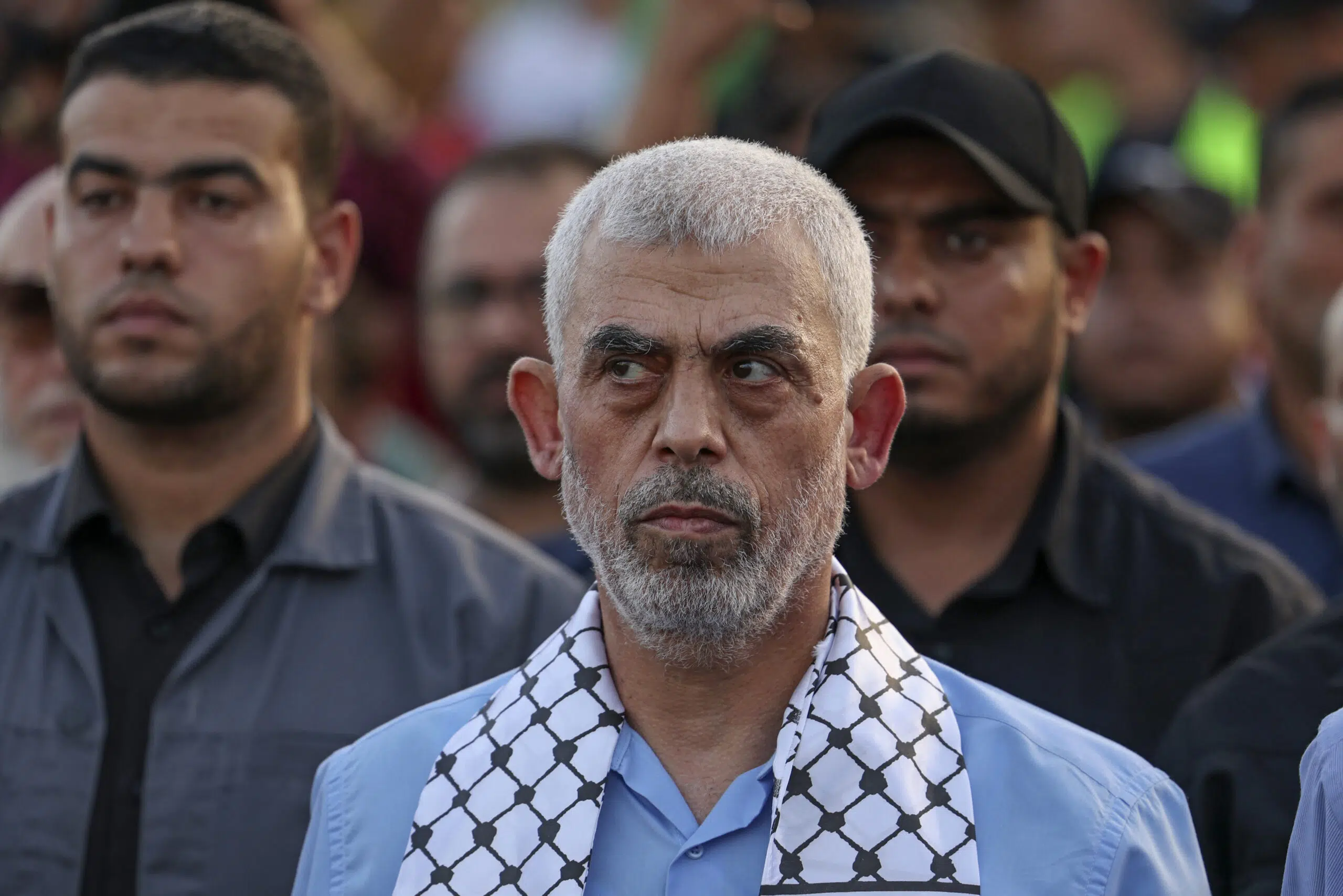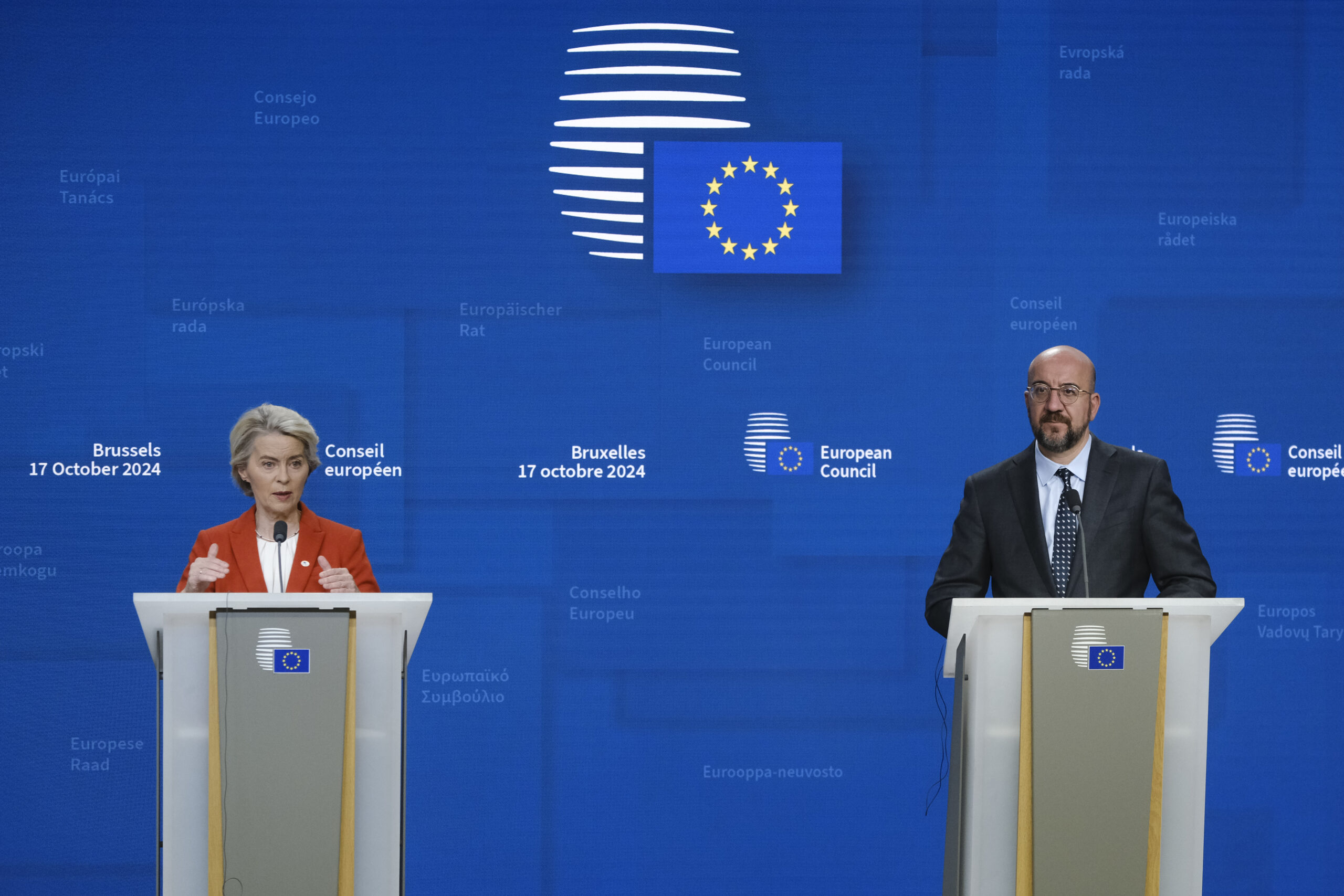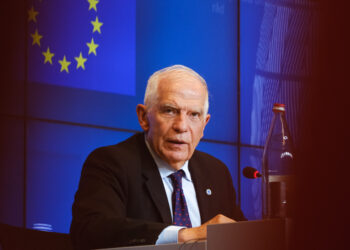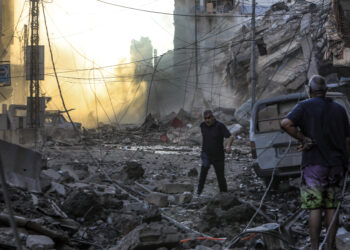Brussels – The EU is losing patience with Israel, even if It is late, given the unacceptable number of civilian casualties and atrocious suffering caused in a year of conflict in the Middle East. Meeting in Brussels for the European Council, the heads of state and government of the 27 member states condemned several of Tel Aviv’s actions: from the expansion of raids in Lebanon to the disastrous humanitarian situation in Gaza, the military attacks on UNIFIL contingents and verbal attacks on the United Nations, and the escalating violence in the West Bank. “Israel’s behavior is increasingly less tolerated in the room,” an EU official admitted during the summit.
Inevitably, the news of the death of Yahya Sinwar, the political leader of Hamas believed to be the mastermind behind the attacks on Oct. 7, 2023, killed by the Israel Defense Forces in a refugee camp in Rafah, overshadowed on the summit. “His death certainly significantly weakens Hamas,” said Ursula von der Leyen during a press conference on the sidelines of the European Council. However, perhaps due to purely timing issues, the leaders did not take advantage of Sinwar’s death to further strengthen the call for an end to hostilities.

The conclusions adopted by the 27 member states did not mention the Hamas political leader. “An important turning point that we must seize,” however, highlighted Emmanuel Macron, according to whom the killing of Sinwar “opens new political horizons.” Giorgia Meloni shares the same view and, in a statement, said she was convinced “That we must now start a new phase,” that of the release of hostages, an immediate ceasefire, and the start of the reconstruction in Gaza.
As they have for the past year, EU leaders have recognized Israel’s “right to self-defense” against Hamas and Hezbollah, the main armed groups funded by Iran. According to Brussels, Tehran is the most “serious threat to regional stability,” as demonstrated by the attack on Israel on Oct. 1. Once this point was made clear, the 27 member states showed an unusual firm and united front in their harsh criticism of Tel Aviv’s military and diplomatic behavior. “An increasing number of leaders is raising the question of what to do so that Israel changes its attitude because concern and discussion are not enough,” an EU source explained.
Upon his arrival in Brussels yesterday morning, the EU High Representative for Foreign Affairs, Josep Borrell, called for leaders to “take seriously” the attacks launched on “all fronts” against the UN system by Benjamin Netanyahu’s government. And they did.
Regarding Lebanon, the 27 member states said they “deplore the unacceptable number of civilian casualties, the forced displacement caused by the escalating violence, and the persistent use of military force.” They also reiterated that “Lebanon’s sovereignty and territorial integrity must be respected.” The Israeli attacks against UNIFIL “constitute a grave violation of international law” and “must stop immediately.” The EU heads of state and government affirmed their “full and unconditional support for the UN Secretary-General,” emphasized “the essential role of the UN and its agencies, notably UNRWA,” and “condemn any attempt to hinder the agency’s ability to carry out its mandate.”
On Gaza and the West Bank, the European Council “deplores the unacceptable number of civilian casualties, especially women and children,” and “the catastrophic levels of hunger and imminent risk of famine caused by insufficient entry of aid.” It also recalls “the need to fully implement the orders of the International Court of Justice.” There is also a significant call in the summit conclusions to “pursue work on further restrictive measures against extremist settlers and against entities and organizations that support them.”

Ursula von der Leyen and Charles Michel at the press conference on the sidelines of the European Council, 17/10/24
At the same time, the EU is united in its support for the Palestinian Authority (PNA). As von der Leyen stressed, the two-state solution “can only be achieved with a stable and reformed Palestinian Authority.” The PNA needs emergency support and a “long-term plan,” for which she urged “a collective effort at the political and financial level.” The summit’s concluding document also states that “a credible pathway toward Palestinian statehood is a crucial component” of the political process toward the two-state solution.
What is once again missing from the conclusions is what levers to push to ensure that Israel adheres to the boundaries of international law. The status of the EU-Israel Association Agreement was discussed at the summit. Its potential suspension – demanded for months by Spain and Ireland – would have significant repercussions on the Israeli economy: “The debate has started at the level of foreign ministers, and I have no doubt that it will continue in the coming weeks,” said European Council President Charles Michel.
Reportedly, the possibility of halting arms supplies to Tel Aviv was not discussed. An arms embargo is the prerogative of individual member states, but the EU could impose it by introducing appropriate sanctions, as it did with Russia, for example. The idea, particularly opposed by Germany, has been suggested several times by Paris in the last few days. “You cannot call for a ceasefire and continue to supply arms to Israel,” Macron said again last night.
English version by the Translation Service of Withub









